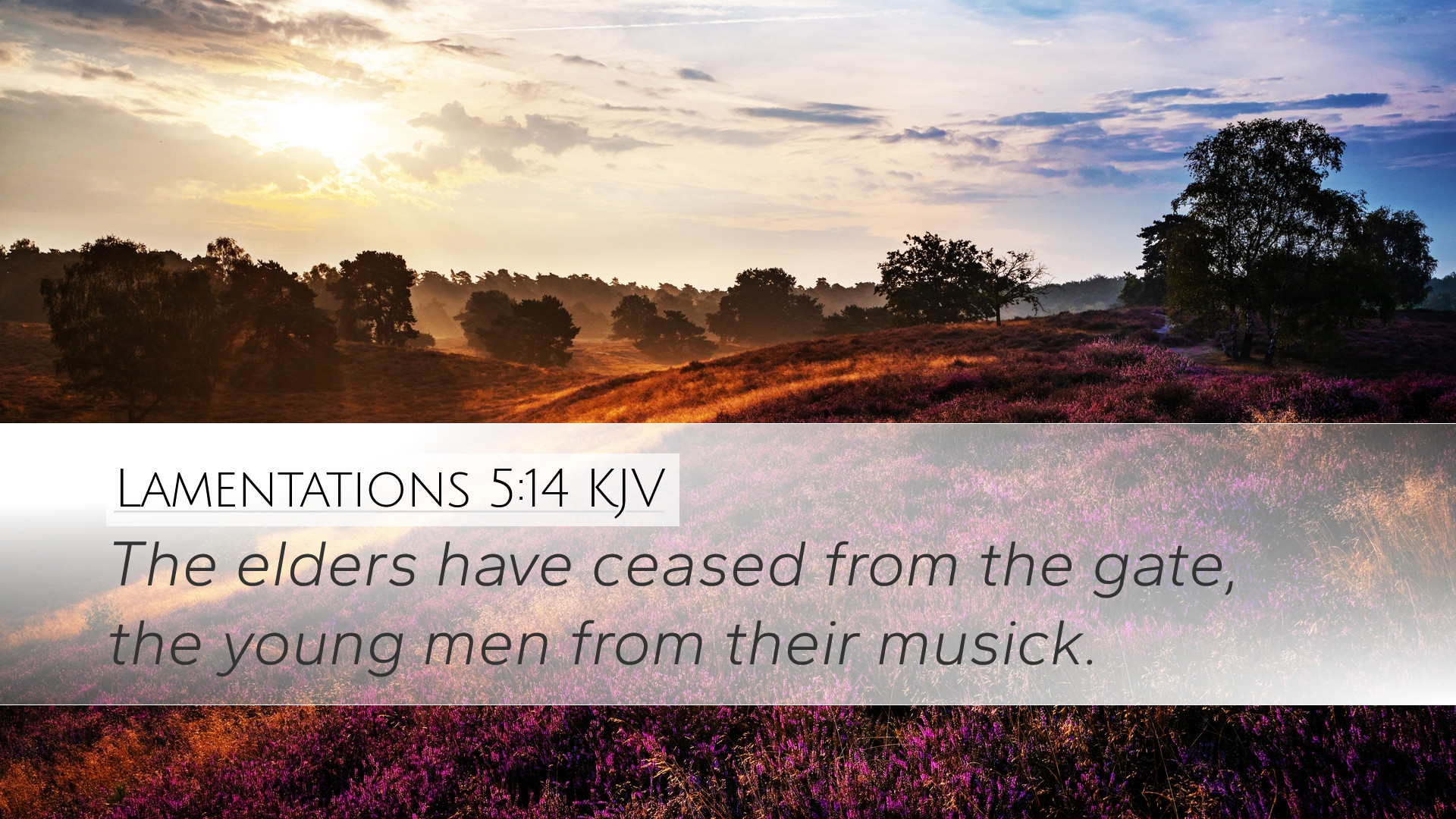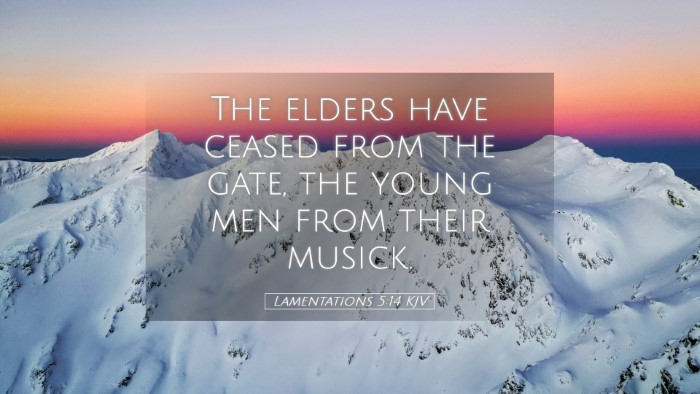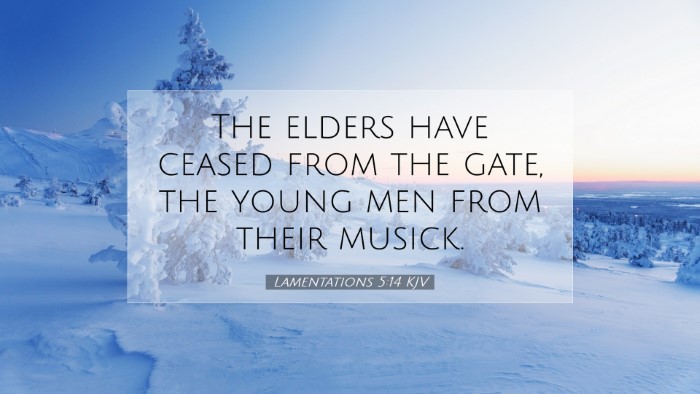Lamentations 5:14 Commentary
Bible Verse: "The elders have ceased from the gate, the young men from their music."
Introduction
The Book of Lamentations stands as a poignant expression of grief and reflection in the aftermath of the destruction of Jerusalem. Lamentations 5:14 serves as a significant verse that encapsulates the despair of the people as they mourn the loss of both their leaders and their joy. By examining this verse through the lenses of prominent public domain commentaries from Matthew Henry, Albert Barnes, and Adam Clarke, we can gain deeper insights into its implications for the original audience and contemporary readers, especially pastors, students, theologians, and Bible scholars.
Contextual Background
Lamentations is traditionally ascribed to the prophet Jeremiah, who likely witnessed the Fall of Jerusalem in 586 B.C. This particular chapter is a communal lament, offering a series of heartfelt cries from the suffering people of Judah. The verse in question reflects a state of desolation, highlighting the loss of societal structures and cultural expressions that once brought vibrancy to the community.
Verse Analysis
The Elders Have Ceased from the Gate
Matthew Henry remarks that the "gate" was a place of gathering and judgment, where elders provided wisdom and guidance. The cessation of their presence signals a void in leadership and moral authority. This absence signifies not only physical loss but the collapse of societal norms that regulated behavior and maintained order among the people.
The Young Men from Their Music
Albert Barnes notes that music was essential in Israelite culture, serving both as a means of worship and communal joy. The young men's abandonment of music reflects a profound sorrow that has rendered them unable to express joy. This loss further compounds the sense of despair, as music often symbolizes hope and celebration within a community.
Theological Implications
This verse invites deeper reflection on the relationship between community, leadership, and cultural expression in times of crisis. Adam Clarke emphasizes that the absence of elders and the cessation of music serves as a metaphor for the spiritual barrenness of the people. In their communal lamentation, the Israelites not only mourn their leaders and their joy but also grapple with their spiritual desolation.
The Dual Nature of Suffering
Henry’s commentary reminds readers that suffering impacts various facets of life. The leaders’ absence represents more than physical void—it's emblematic of lost wisdom and guidance, while the lack of music signifies a loss of hope and spiritual vitality. The blend of social, emotional, and spiritual suffering experienced by the people underscores the holistic nature of human experience and the trials of faith.
Relevance to Today’s Context
For modern readers, particularly pastors and theologians, Lamentations 5:14 raises vital questions about leadership and community resilience in troubling times. What does it mean for leaders to uphold their responsibilities? How do we maintain our joy and sense of community when faced with hardship? These reflections highlight the necessity for strong, compassionate leadership and the crucial role of communal solidarity in overcoming adversity.
Practical Applications
- Leadership and Responsibility: Pastors should strive to embody the principled leadership demonstrated by the elders in their communities.
- Creating Environments of Joy: Music and celebration can foster hope. Communities can be encouraged to revive traditions that bring joy even in mourning.
- Active Lamentation: Providing spaces for communal lament can help communities process grief, akin to the collective mourning in Lamentations.
- Spiritual Formation: Engaging with the text invites deeper theological reflection on God’s presence in community distress and His promise of restoration.
Conclusion
Lamentations 5:14 poignantly encapsulates the heartbreak following profound loss—the cessation of wise leadership and the joy of music. Through the insights of Matthew Henry, Albert Barnes, and Adam Clarke, we are reminded of the essential roles that community, leadership, and cultural expressions play in spiritual and emotional resilience. As congregations navigate contemporary challenges, this verse serves both as a lament and an invitation to foster renewal, restoration, and hope within the body of Christ.


